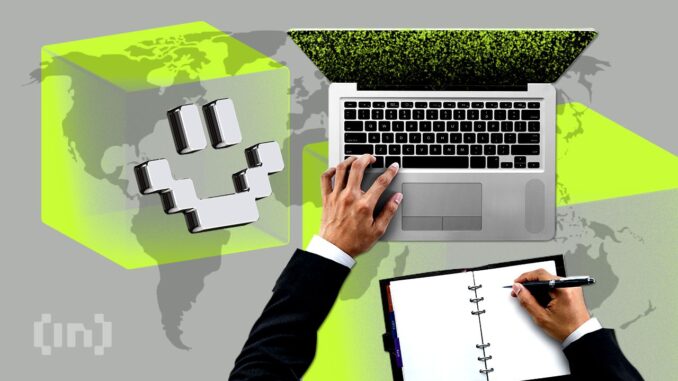
The decentralized nature of blockchain and the flexibility of remote work have proven to be a significant advantage for companies operating within the Web3 and cryptocurrency sectors.
Fully remote companies utilize the unique benefits of remote work to drive innovation and expand their global presence.
Bridging the Ethos of Web3 With Remote Work
Amanda Keleher, Chief People Officer at Consensys, told BeInCrypto about the profound impact of remote work, especially given the accessibility to global talent pools. With over 800 employees from various cultural backgrounds working across six continents, Consensys leverages a broad spectrum of perspectives.
This diversity fosters innovative ideas and assists in uncovering new use cases globally. Likewise, the shift towards remote work has facilitated the rise of independent workers in Web3. This model provides flexibility and requires businesses to adopt more collaborative working methods, reflecting a fundamental shift towards a more balanced, co-creative relationship that enriches the workplace experience.
Moreover, traditional salary packages are being supplemented, or even replaced, with digital currencies and token-based rewards. This shift aligns with the digital nature of Web3 and enhances the appeal to tech-savvy professionals who value innovation in payment solutions.
“Web3 is also slowly shifting certain work-related processes to the blockchain. This includes employment agreements, contracts with service providers and even verifying credentials. These processes are becoming more open, secure, and easily accessible through decentralized technologies,” Keleher told BeInCrypto.
Read more: A Complete Guide to Remote Work for Businesses and Employees
This commitment to decentralization is not just about technology but is also mirrored in corporate structure and culture. For instance, Consensys holds regular Town Hall meetings and quarterly Ask Me Anything (AMA) sessions with their leadership. According to Keleher, these initiatives foster a transparent and engaging community environment on a more personal level.
Likewise, the influence of DAOs (Decentralized Autonomous Organizations) on the workplace cannot be overlooked. DAOs provide insights into how employees prefer to work and be compensated. This model promotes a deeper connection to the workplace through community, connection, purpose, and co-creation.
“DAOs can transform how people see their careers where they are not just working for a company but working with a company. It’s an interesting perspective as we’re learning that people want to have a deeper connection to their workplace,” Keleher told added.
While the flexibility of remote work aligns well with the decentralized nature of blockchain technologies, it also introduces significant risks that need careful management.
The Hidden Dangers Demand Your Attention
A primary concern for crypto companies is the steep learning curve associated with blockchain and related technologies.
Keleher highlights the educational barriers as a significant hurdle. She advises creating learning and development programs to combat this. For instance, MetaMask Learn offers free, multilingual education on Web3 technologies.
“There is a steep learning curve associated with understanding blockchain, smart contracts, or decentralized applications. This can make it challenging to onboard employees, stakeholders and users who are not familiar with these concepts. It is critical that companies invest in learning and development of the technology to avoid low adoption rates and an inability to affect real change,” Keleher explained.
Read more: Transitioning Careers: A Step-by-Step Guide to Success
Another significant risk posed by remote work in the Web3 sector is maintaining data security. Consensys achieved ISO27001 certification to maintain the highest data security standards. This represents a global benchmark for information security, aiding organizations in evaluating their data protection capabilities.
The push for high-security standards is critical as remote work scenarios often involve multiple access points that can potentially be exploited.
“Our ISO27001 certification underscores our dedication to implementing the most robust security controls. In addition, we have also received the SOC2 type one and two certifications. We encourage other Web3 organizations to embrace best-in-class information security standards to collaboratively foster a culture of security awareness,” Keleher concluded.
Moreover, the regulatory environment for blockchain and cryptocurrencies remains a grey area. It is compounded by the remote work model where jurisdiction can be ambiguous. Keleher asserts the need for smart, flexible regulations that evolve with the technology to prevent stifling innovation.
Remote work in Web3 and crypto industries carries undeniable risks but allows for greater flexibility, access to a wider talent pool, and innovative compensation methods.
Disclaimer
Following the Trust Project guidelines, this feature article presents opinions and perspectives from industry experts or individuals. BeInCrypto is dedicated to transparent reporting, but the views expressed in this article do not necessarily reflect those of BeInCrypto or its staff. Readers should verify information independently and consult with a professional before making decisions based on this content. Please note that our Terms and Conditions, Privacy Policy, and Disclaimers have been updated.






Be the first to comment